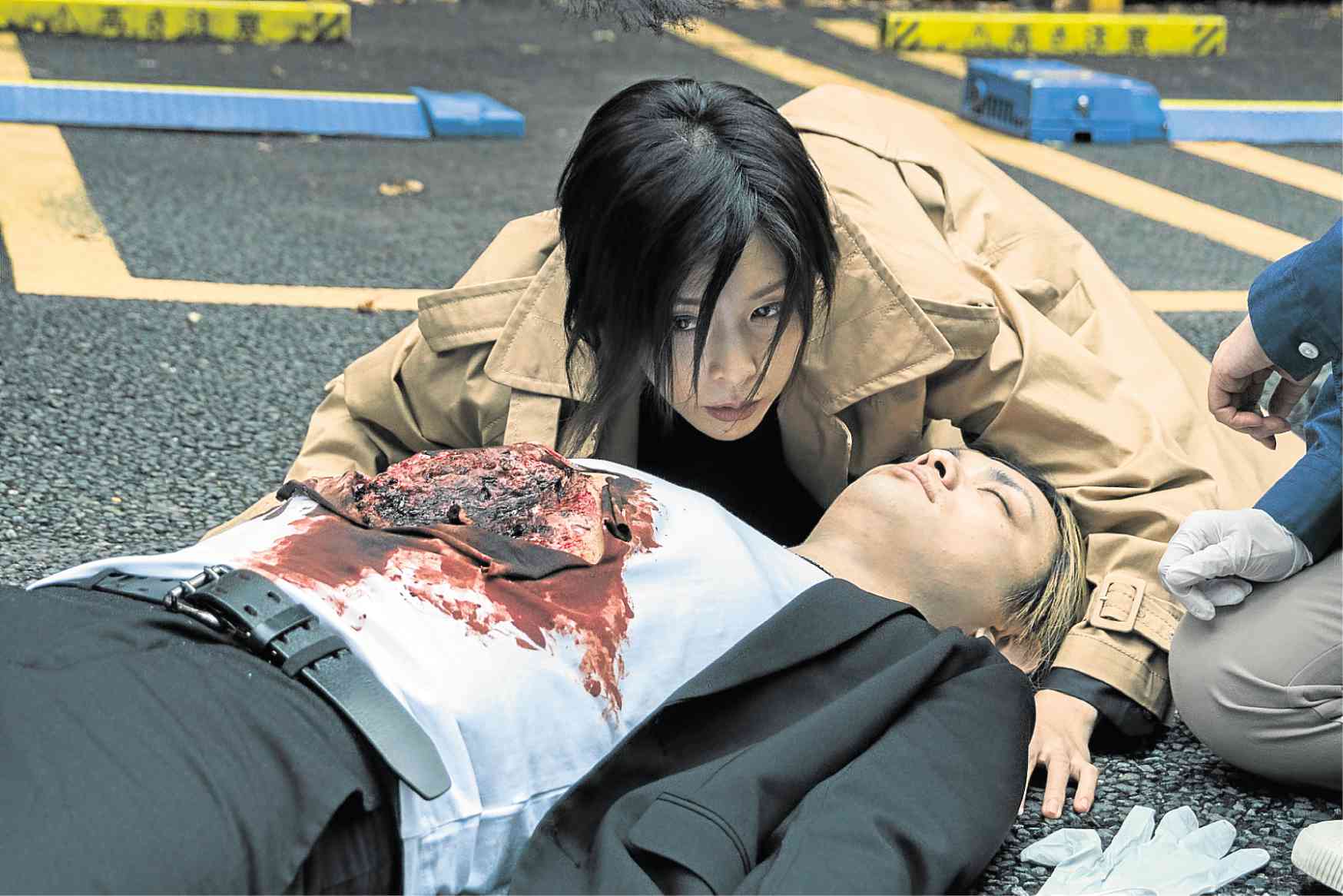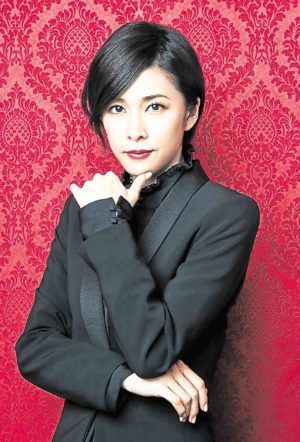Iconic detective Sherlock Holmes is a woman in HBO Asia’s new TV series
TAIPEI—In HBO Asia’s new television adaptation of Arthur Conan Doyle’s character Sherlock Holmes, the fictional detective—as expected—lives in
a knickknack-filled apartment numbered 221B; is reluctantly trailed by a doctor who had just served in the Middle East; and helps unravel cases too complex and bizarre for the local police to solve.
But this time, the flat stands not on the busy Baker Street in London, but in a relatively sleepy neighborhood in Tokyo. The assistant isn’t an awkward man with a limp, but a slight lady with a fringe, who has a penchant for keeping letters. She’s Dr. Wato Tachibana, which, quite cleverly, becomes “Wato-san” when referred to with an honorific.
The iconic detective is a woman, too—keen and cunning, with deductive reasoning skills that border on clairvoyance. But unlike the frantic eagerness with which the character is usually depicted, this Sherlock—or “Miss Sherlock,” rather—operates with elegance and occasional bouts of cheekiness.
Putting the “she” in Sherlock is the 38-year-old Japanese actress Yuko Takeuchi, who said that having a version of Sherlock Holmes that features women in the lead roles felt “unprecedented” to her.
Special
Article continues after this advertisement“The fact that both Sherlock and Dr. Watson are both females already makes the show special. I was excited. I took on the role because I felt the story would be very interesting,” she told a group of Asian reporters, including this Inquirer writer, in a recent junket in Taiwan’s capital, where HBO likewise held a red carpet event and screening.
Article continues after this advertisementWhile she had read books from the Sherlock Holmes canon and seen earlier television adaptations, Takeuchi refrained from consuming other media after accepting the role.
“I chose not to read or watch because I was worried that I would get influenced by them,” she said, through a translator. “I want to give a new portrayal of Sherlock.”
Having a female Sherlock and/or Dr. Watson isn’t entirely groundbreaking: The 1986 Soviet made-for-television film “My Tenderly Loved Detective” has female leads, too, but seemed to have focused more on the characters’ respective romances; there’s also the American series “Elementary,” which has Lucy Liu playing Dr. Watson.
“Miss Sherlock,” however, is arguably the most committed to the concept, and the first to specifically cater to the Asian audience. Coproduced with the video streaming service Hulu as part of HBO Asia Originals, the eight-part series airs globally every Friday at 9 a.m., and can be accessed on HBO Go.
Easter eggs
“We would like to attract both fans and nonfans of Sherlock Holmes, and show them that Japanese dramas are also worth watching,” Takeuchi, who starred in such films as “A Dog on Sidecar” and the cult horror flick, “Ring.”
“Miss Sherlock” tries to be as faithful to the source material as possible and is laden with hidden Easter eggs waiting to be found by fans.
“There will be some aspects that will remind you of the original Sherlock, like the houses, surroundings. But you will have to find them yourselves,” she said. “There has to be some mystery, of course.”
But because of the show’s gender-swapping and the different setting, a shift in character dynamics and plot sensibilities is inevitable, but nonetheless organic.
In BBC’s “Sherlock,” for instance, Sherlock Holmes and Dr. Watson’s interactions and exchanges are oftentimes riotous, rife with clashes and wisecracking.
Here, Sherlock treats Wato-san almost like a kid—teasing her, picking on her lack of fashion sense and ruffling her feathers any way she can. Wato-san (played by Shihori Kanjiya), on the other hand, is more reactive and at times appears as a student trying to win her superior’s approval. She even cooked breakfast for Sherlock, only to be slapped with a comically exhaustive list of dietary quirks.
“Since the two characters are converted to females, the relationship will naturally be a bit different,” Takeuchi pointed out.
Japanese culture
Nuances of Japanese culture and everyday life can also be discerned every so often.
In the pilot episode, we see Wato-san chasing and admonishing Sherlock for not taking her shoes off, before barging into a subject’s house. In addition, some of the crimes presented involve experimental or cutting-edge technology the Japanese are known for.
“We want to show a little of our culture through the series, show things that the Japanese people take for granted,” said Takeuchi, who had to learn to play the cello for the role.
True to form, Sherlock remains emotionally detached and socially inept; she often gets into fights and has zero concept of personal space. These traits are perhaps more interesting to observe in a Japanese setting, wherein harmony and conformity are valued.
“It was a big challenge for me. In my childhood, I was always told by my father to look into people’s eyes when talking to them. But this time, I tried not to,” she related. “I tried to act as if there was no one else around me, but it was difficult.”
But such qualities are the very reasons that make Sherlock a formidable investigator—and it doesn’t hurt to have the so-called “women’s intuition” this time around.
“Sherlock is incredibly knowledgeable, which is something that isn’t exclusive to a man or a woman… But they say women have a ‘sixth sense,’ which may help solve crimes,” Takeuchi mused.

